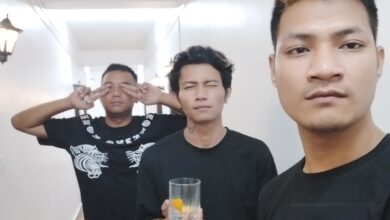Teaching for tomorrow

SARAFNAMA
 From the day we arrive on the planet/And blinking, step into the sun/There’s more to be seen than can ever be seen/More to do than can ever be done/Some say eat or be eaten/Some say live and let live/But all are agreed as they join the stampede/You should never take more than you give…
From the day we arrive on the planet/And blinking, step into the sun/There’s more to be seen than can ever be seen/More to do than can ever be done/Some say eat or be eaten/Some say live and let live/But all are agreed as they join the stampede/You should never take more than you give…
(Excerpt from the song, Circle of Life in the movie The Lion King)
There is so much abundance on our planet that we can never have enough. Yet, our ethos is to only acquire and never give back to society. But if this happens then society can never sustain its fabric will eventually erode.
We talk about free education but do not have the requisite teacher base to provide that. There are simply not enough teachers and there is no way we can create that kind of number to meet the needs of the whole population. How can education therefore sustain?
It is today that we need to create an infrastructure such that tomorrow is sustainable. It is today that we need to teach our students that giving back is the only solution to the existence of tomorrow. It is today that we need to build a culture such that giving is as natural a process as taking and that it is the only way to survive and abound. It is today that we need to teach for tomorrow.
Imagine a simple scenario where every Infosys employee gives one hour per week of free teaching to a child. There are almost one hundred thousand employees in Infosys. Even if five hours are required per child per day for five days a week, the total number of children who could be then educated could be as high as four thousand. Imagine if this was mandatory by law for all organizations, then the number of children that could be taught would rise exponentially. This results in sustainability.
Imagine another scenario where there are ‘Learning Maps’ for everything. There are mentors who catalogue their experience with an activity and document it in the generic library — say ‘Learningmapedia’ on the internet.
Every time someone needs to know about something, he visits the generic library and accesses this resource. He finds detailed guides on how to go about learning or doing something. It could be in the form of first watching three ‘You Tube’ videos, then listening to two audio clips and finally reading five indexed articles. The user then adds his experience to the resource and enriches it, thus giving back.
If this culture is adopted by everyone and people move from being user to mentor and then to user again, imagine the explosion in relevant and organized knowledge as against the information overload so prevalent today. This is another factor which causes sustainability.
Finally, imagine a third scenario where education is built not around subjects but around activities. Instead of a teacher teaching math or physics separately, and then organizing activities to teach the subject at a theoretical and independent level; she organizes an activity and teaches all subjects relevant to that activity.
For example, if the activity is a kitchen activity, then she could teach mathematics through selection, purchase and preparation of recipes — addition, subtraction, proportions, fractions and finance; she could teach English in terms of the vocabulary of terms used; she could teach foreign languages by asking students to interpret the English terms in other languages; she could teach chemistry by taking the microwave as an example — why steel is not suitable and why plastic burns; she could teach physics by taking the pressure cooker and the microwave as an example — convection, radiation and oxidisation; she could teach biology through trying to brew (root) beer (with yeast), make yogurt (with bacteria); she could teach history through historical significance of different appliances, she could teach geography by asking the students to find out what is special about the Australian kitchen, how past immigration has changed eating habits of Australians and the native food of the Aborigines.
If she organises a football match, she could then again explain to the students how the principles of various subjects get captured in that game. So, from the composition of the football, she could teach chemistry; from the trajectory of the flight of the ball, she could teach physics; by identifying all the countries playing football in the world, she could teach geography; from the rules of the game such as obeying the whistle, she could teach manners and consequently discipline.
Another activity could be a visit to a jeweller shop where the students can see small amounts of gold ornaments being sold at high prices. Here the transactions teach them finance and when they compare this to the price of say, vegetables, they can learn economics through the concept of demand and supply.
Hence, the number of subjects that can be taught is not restricted and increase exponentially albeit now with practical relevance. After all, if a particular theory does not have practical relevance, why learn it in the first place.
If every student based on his unique learning now contributes to a generic library — say ‘Wikipedia’ on the internet in some small way, then the child from an early age learns to give back to the education system which has nurtured him. As this spans across time with every student contributing regularly, imagine the explosion in learning material. If the student’s contribution to Wikipedia is rated by people across the world; there can be no better examination system and traditional examinations will no longer be required.
Hence, the whole gamut is about ‘Community’ and sustainability therefore stems from building a culture of interdependence where taking from and giving back to society is intertwined. It is like an ethos ladder where people get pulled up by others and then pull up others in return. It incorporates the realization that it is only when this happens that the circle of life can truly be complete – where one is nurtured and then nurtures in return.
It is today that we therefore need to teach for tomorrow…
Some say eat or be eaten/Some say live and let live/But all are agreed as they join the stampede/You should never take more than you give.





